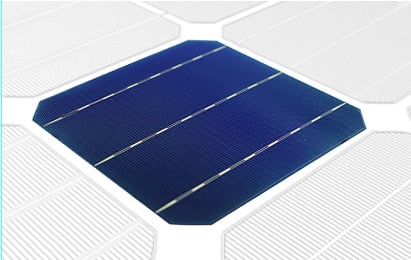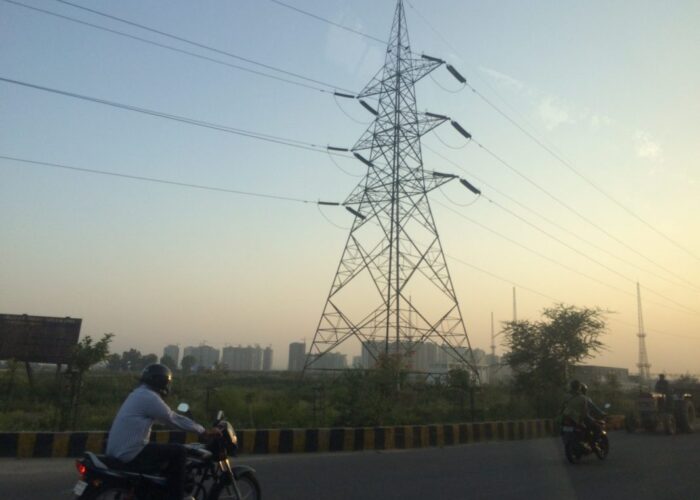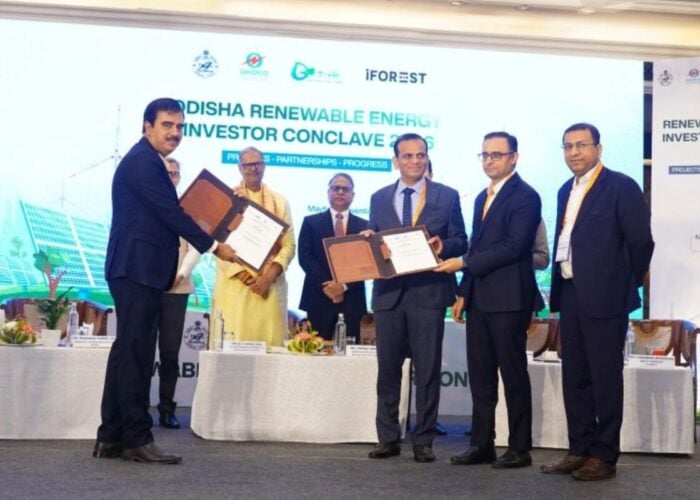
An oral hearing for India’s anti-dumping investigation was held on Tuesday, giving a chance for domestic and foreign manufacturers as well as module importers to air their cases.
The investigation by the Directorate of Anti-Dumping & Allied Duties (DGAD), which started in July, regards Indian imports of cells and modules from China, Taiwan and Malaysia.
Try Premium for just $1
- Full premium access for the first month at only $1
- Converts to an annual rate after 30 days unless cancelled
- Cancel anytime during the trial period
Premium Benefits
- Expert industry analysis and interviews
- Digital access to PV Tech Power journal
- Exclusive event discounts
Or get the full Premium subscription right away
Or continue reading this article for free
H.R. Gupta, general secretary of Indian Solar Manufacturers Association (ISMA) and managing director of Indian cell manufacturer Indosolar, told PV Tech that all registered stakeholders now have seven days to convert their oral comments into written submissions. ISMA will then give a response to these submissions by 2 January next year.
Gupta said: “We are pleased with the progress and we appreciate the hard work of the authority and we believe that a certain momentum has been gathered in the case. We hope that we have been able to evidence our points about predatory pricing that would need remedial action to solve the issues of energy security, employment and manufacturing reserach and development in India.”
A stakeholder who was present at the oral hearing provided PV Tech with the following list of key arguments put forward by both sides at the hearing.
Key points from domestic module manufacturers:
- The market share of domestic manufacturers is only 7%, because of dumping.
- Once anti-dumping duty is levied, domestic firms will increase the capacity to match the demand.
- The landed prices of modules from the subjected countries are artificially cheaper than the cost of module manufacturing in India.
- After the last recommendation of anti-dumping (AD) duties, which was not imposed, the Indian government promised to support domestic manufacturing via the Domestic Content Requirement (DCR) tenders. However, after losing a WTO trade case, DCR tenders have been discontinued (as of 14 December this year). Thus, in absence of support in terms DCR tenders, remedial action is required to protect Indian manufacturers against dumping.
- In spite of the petitioners’ recent profits, they are still not reaching reasonable profits of 22% as a result of dumping.
Remarking on the fifth point, Gupta said that the petitioners have not been profiting of late, with the excepting of Tata Power Solar, which generated profits from its EPC business rather than manufacturing, and Websol which carried out a debt settlement. Other manufacturers on the other hand, such as Indosolar and Jupiter Solar, are still in trouble and most of them have gone into insolvency, added Gupta.
Counter arguments by foreign manufacturers and importers:
- The landed price of modules as compared to the prices of non-subjected countries are comparable. Hence, there is no dumping.
- The claim of 22% as a reasonable profit by petitioners is not maintainable as per proceedings of the anti-dumping duty. Besides, profitability of petitioners has increased from -80 to 35 as per index of 100 basis points (BPs).
- The cost of module manufacturing in India has reduced from 100 BPs to 20 BPs from 2013 to 2017, whereas the sale price has reduced from 100 BPs to 85 BPs only, which is why the balance sheets of petitioners have improved during this period. As a result their EBIDTA has increased from 100 to 350, whereas PBT has increased from 100 to 250.
- As per MNRE, there are about 115 module manufacturers and about 30 cell manufacturers in India corresponding to capacity of about 8GW and 3GW respectively. Their PLF is about 87%.
- Cells and modules are two different products and should not be clubbed together. Similarly, multicrystalline and thin-film are two different products and should not be treated similarly. This has also been endorsed by anti-dumping duty proceedings in the US and EU.
- Petitioners have claimed that only about 50 module manufacturers are present in India, which is not true and the combined market share of petitioners is only about 7%, which is less than the threshold value of 25% as per the standing of the proceedings.
- Even if protection in the form of duties were to be given to petitioners, they will not be able to match the asking rate of 15GW per year as per India’s 100GW target.
- The benefit of low module prices has been passed on to the consumer by developers offering lower tariffs, which is not the case with domestic manufacturers.
- The open category tenders do not differentiate between domestic modules and imported modules. Thus, module transaction will entirely be dependent on market and economic factors rather than protection given in terms of AD duties.
- The DCR modules are inferior in terms of quality.
- Government of Taiwan made a statement that their export to India are only about 0.4%. Thus, they should be excluded from the AD duty proceedings.
- Government of China made a statement that they have been cooperating with Indian authorities and AD duty should be properly investigated and be levied only if there is a merit in it.
- Government of Malaysia made a statement that AD duty would be a violation of Free Trade Agreement (FTA) between the countries.
Back in September, PV Tech detailed views from a wide sector of the industry on whether AD duties of safeguard duties were likely to be brought in.
Whatever the outcome of the investigation, India's manufacturers will be relying on proposals to allocate a huge amount of public sector undertaking (PSU) solar capacity under a kind of DCR mandate – a segment which promises multi-gigawatt potential.






